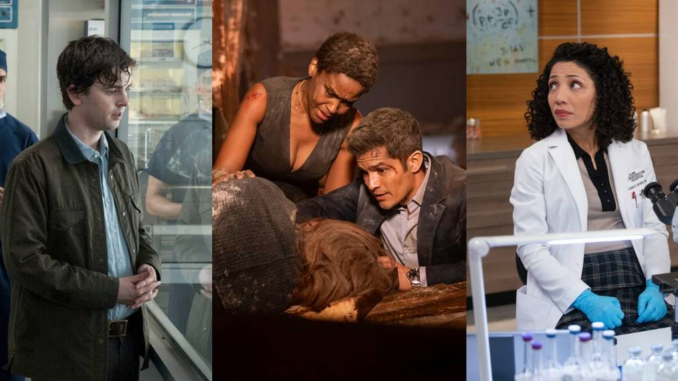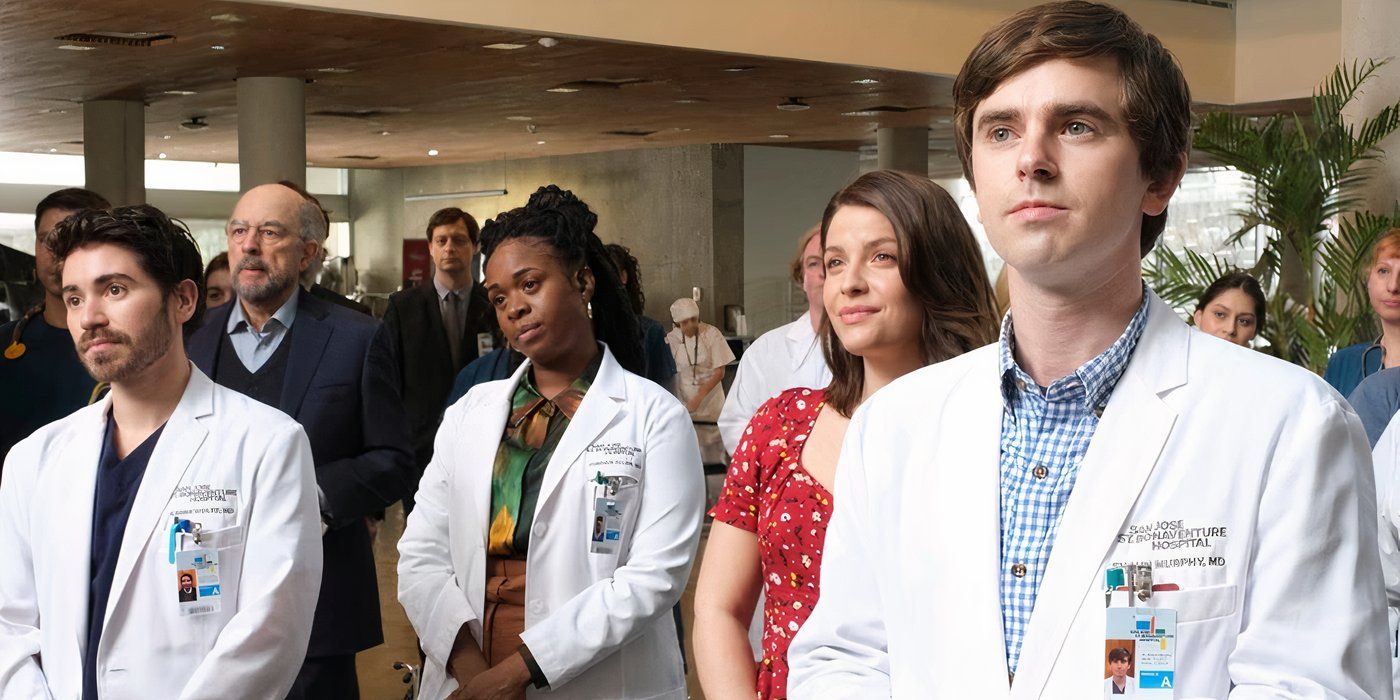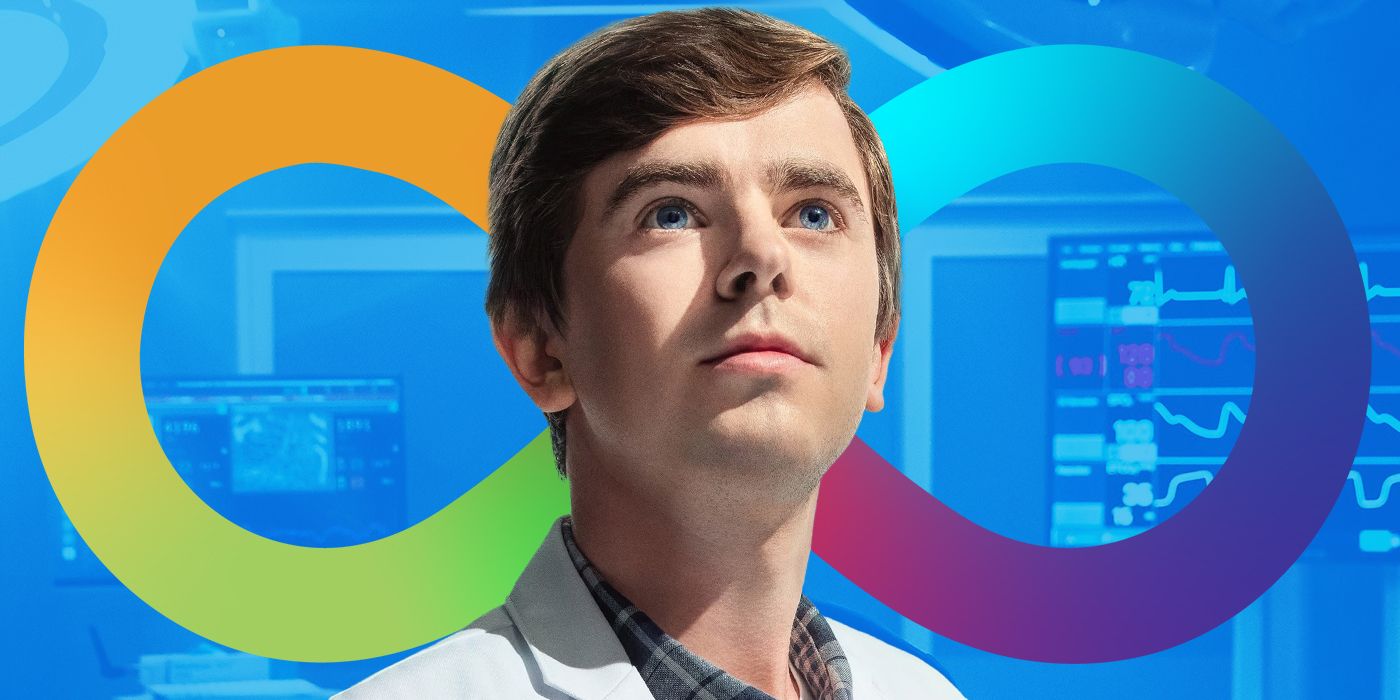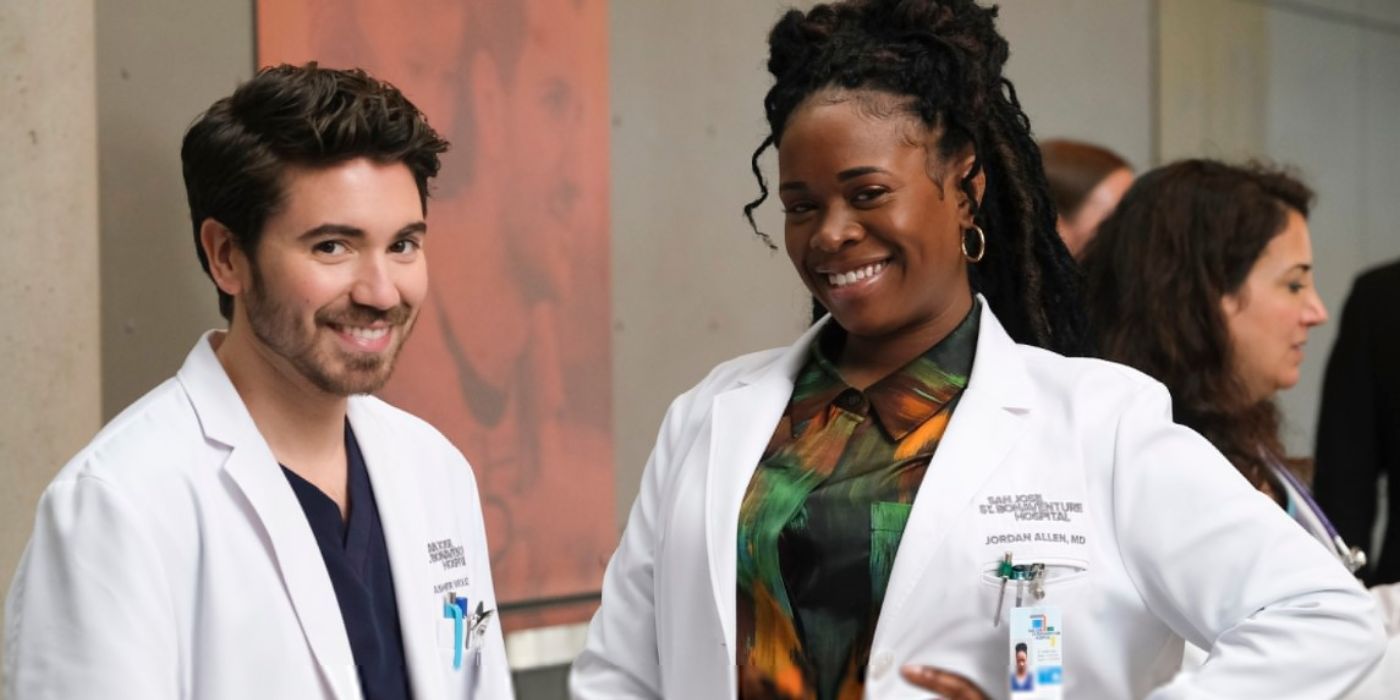
The Good Doctor has never been afraid to show truly heart-wrenching moments. Not an episode goes by without the patients of St. Bonaventure Hospital enduring some of the most harrowing life-or-death situations. But like many medical dramas (including E.R. and Grey’s Anatomy), the series also has a history of placing its doctors in life-threatening situations. The Good Doctor, which premiered on ABC in 2017, is now in its seventh and final season. Although viewers learned early on that no main characters would be completely safe from catastrophe, many viewers had hoped that its last season would provide more moments of healing. Now that Dr. Shaun Murphy (Freddie Highmore) and Lea (Paige Spara) have their baby boy, Dr. Aaron Glassman (Richard Schiff) has recovered from his brain condition, and Dr. Morgan Reznick (Fiona Gubelmann) and Dr. Alex Park (Will Yun Lee) have been reunited, it seemed as though the characters could finally have some peace. However, now that The Good Doctor is eight episodes into the season, it’s become clear that the writers have no intention of finishing the show without invoking some serious tragedy along the way.

Anyone who watched the first six seasons of the series knew that heartbreak was the name of the game for any and all characters. Dr. Neil Melendez (Nicholas Gonzalez) suffered a shocking death after being severely injured in an earthquake at the end of Season 3. Another one of St. Bonaventure’s own died in a devastating way when Nurse Deena Petringa (Karin Konoval) contracted COVID-19 in Season 4. This loss was particularly hard on the characters of the show and on the audience, since the pandemic still hit very close to home for many. Not all calamitous situations have ended in death, such as the Season 5 stabbing of Dr. Audrey Lim (Christina Chang). But these alarming events furthered the audience’s belief that none of their favorite characters would be safe from misfortune.
Asher’s Death Didn’t Need to Happen in ‘The Good Doctor’s Final Season
After all the tragedies that have unfolded over the years on the series, the expectation was that maybe Season 7 would offer some breathing room for its main characters. Instead of letting the doctors exist in peace, the writers decided to kill off a main character with just five episodes remaining in the entire series. Dr. Asher Wolke (Noah Galvin) had been a fan favorite of the show since joining in Season 4, raised as an Orthodox Jew but turned away from his community and his religion when he realized he was gay. He formed one of the sweeter relationships on the show when he started dating Nurse Jerome Martel (Giacomo Baessato) in Season 5.
In Episode 5 of the final season, while trying to help one of his patients, Asher befriended a rabbi, which allowed him to connect with his Jewish faith again. While dropping the rabbi off at his synagogue, Asher confronted two men who were vandalizing the building and proudly proclaimed his Jewishness (and also admitted to being gay). As Asher walked away in triumph, he was brutally attacked by the men and died in the rabbi’s arms. The saddest and most heartbreaking twist was that Jerome was sitting in a restaurant waiting for Asher so that he could propose to him.

It was shocking to see a beloved character killed so close to the show’s ending. Many viewers argued that Asher could have been beaten and survived (which still could have provided the show with plenty of drama and storylines to explore). Instead, the show fell into a common television trope, referred to as Bury Your Gays, in which LGBTQ+ characters are denied happy endings, usually by being killed off. In a time when LGBTQ+ hate and antisemitism is on the rise, Asher’s death felt alarming. The Good Doctor had the opportunity to provide a gay, Jewish character with a healthy relationship and a happy ending, but instead decided to kill him off for dramatic purposes.
‘The Good Doctor’s Writer Explains Asher’s Death
Despite negative reactions from fans, series writer Adam Scott Weissman emphasized that Asher’s death was carefully thought out and was meant to reflect that not everyone gets a happy ending in life. By killing off yet another beloved character, the series writers hoped to authentically capture a harsh reality that many viewers could relate to in some capacity. In an interview with The Wrap, Weissman shares: “Sometimes things happen suddenly and in a tragic way. . . Oftentimes [these issues] become real when it happens to someone you know, or someone we love on TV, so this horrible thing happens that also brings it home for our viewers.”

Weissman also shared with The Wrap that it was important for Asher’s send-off to speak to his identity as a gay man of the Jewish faith:
“Asher’s final line when he says, ‘I’m not just a Jew, I’m a gay one, too.’ Those were two identities that prior to that he hadn’t been able to reconcile.
